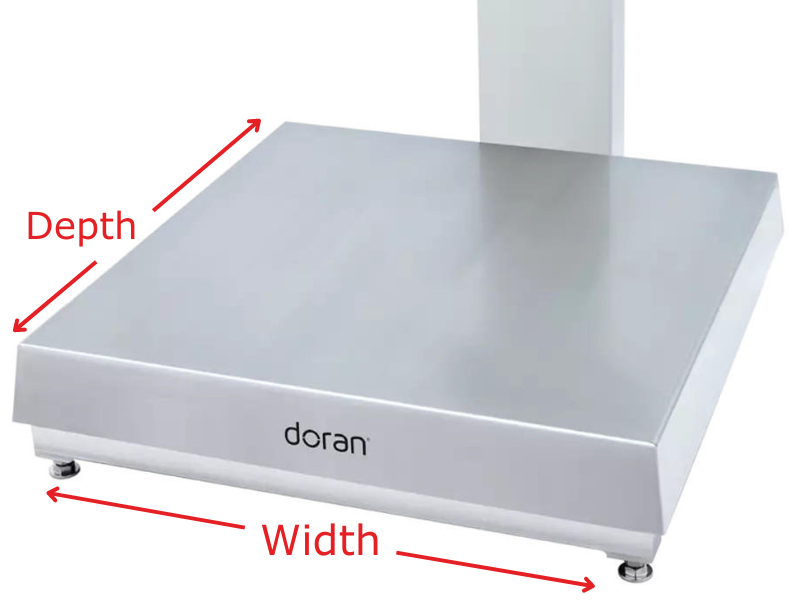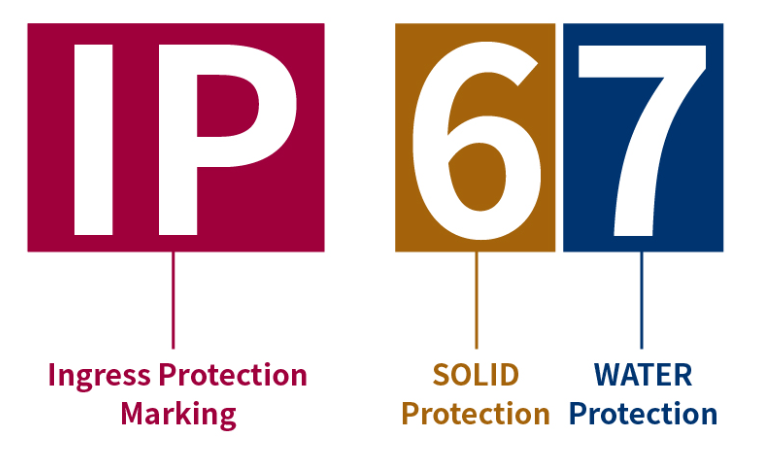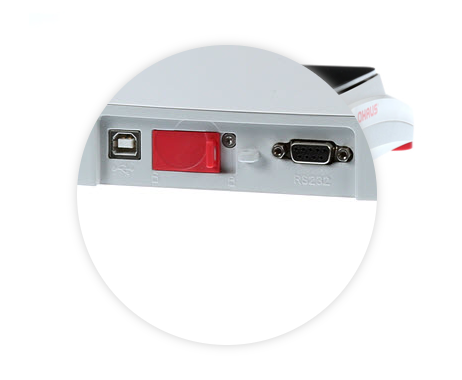Bench Scale Guide - How to Choose the Right One
Sep 24th 2024
Bench scales are the most common type of scale within the industry. As the name implies, they are used primarily on benchtops and work surfaces to weigh goods. With so many options available, choosing the right bench scale is important to ensure your weighing operations run smoothly. In this article, we break down what to consider and how to choose the right one.
Bench scales are not one-size-fits-all. There are many capacities, sizes, configurations and options to choose from. From standard weighing to more advanced processes, choosing the right scale for your application is important to ensure efficiency and productivity.
Let's break down the most important things to consider before buying your next bench scale.
Capacity and Size
The most important aspect of purchasing a bench scale is choosing the right capacity and platform size. You have to make sure the scale capacity is high enough to accommodate your heaviest item. The platform, or weighing surface, must also be large enough to fit the largest item you'll be weighing.
Capacity
Capacity rating is the highest weight a scale is able to handle safely and accurately. When choosing a bench scale, make sure the scale capacity rating is high enough for the heaviest item you'll be weighing. It doesn't hurt to have some extra room to help prevent overloads and potential damage.
For example, if you're weighing a 60lb item, the scale must have a minimum 60lb capacity. However, since it is at the limit, you run the potential of overloading the scale and damaging it. We would recommend moving up to the next capacity option, say perhaps a 100lb scale, to limit the possibility of an overload. This also provides a bit of freedom should you need to weigh something a bit heavier.
Platform Size
The platform, or weighing surface, is where items are set on the scale to be weighed. Platform size is a critical consideration when buying a bench scale. If it is too small, the weight displayed may not be accurate. Ideally, you want to make sure the items being weighed fit on the platform without any overhang. Slight overhand is usually acceptable, but to avoid any potential issues, we recommend choosing a platform large enough to accommodate the largest item you are weighing. This ensures the most accurate measurement.
Intended Use
Bench scales provide a weighing solution for a variety of industrial applications. Choosing the right option ensures you are getting the best bang for your buck. If your single purpose is simple weighing operations, your options are limitless. If you are counting parts for packaging or inventory, you'll want to choose a parts counting bench scale specifically designed for piece counting operations. Perhaps you need to verify an item is within a specified weight range. For that, you'd want to choose an appropriate checkweighing bench scale. Bench scales are available for basic weighing, but many include additional modes for other advanced weighing processes.
Here are some of the most common applications for bench scales:
- Basic Weighing
- Checkweighing
- Parts Counting
- Dynamic Weighing (common for animal weighing)
- Filling
- Percent Weighing
- Check Counting
Construction
Bench scales are constructed from a variety of materials. Some are constructed with a plastic housing, while others are made from mild steel or stainless steel. The type of bench scale you choose depends heavily on the capacity and size of the items you are weighing. But another important factor is the environment they are being used in.
Steel and Cast
In demanding industrial environments, you should opt for a bench scale made from metal. Steel, cast iron and cast aluminum are common construction materials for bench scales. Metal construction makes the scale inherently stronger and able to withstand consistent use. They can also withstand harsh environments where certain chemicals are used or where a large presence of debris exists. Often times, these types of scales include a frame with a load cell that is covered by the weighing pan. This makes it easier to clean and remove debris from the inside of the scale.
Some models are built with a full housing made from diecast or aluminum. These are typically designed with a smaller footprint in mind, so the weighing surface size is usually smaller. A full housing helps protect the internal components. A good example of a bench scale with diecast construction are the OHAUS Ranger 7000 bench scales.
Plastic
ABS plastic is commonly used in the construction of bench scales. Full-housing designs with a small footprint and integrated controls are great to use in areas with limited space. Bench scales with plastic housing also tend to be more economical because the cost to manufacture them is significantly less than metal construction.
ABS plastic is a durable material for use in scale construction, but it isn't as strong as metal. Plastic is also more susceptible to corrosion, damage and staining from chemicals and other liquids. The primary benefits of bench scales constructed from ABS plastic are they are typically more economical, have a smaller footprint and are simpler to use. These are a great option for weighing smaller components with lower capacities, and in environments that are less harsh.
We wouldn't recommend a plastic housing scale in industrial environments where chemicals and solvents are used, where there is significant debris, or in wet environments. That is unless they feature a higher environmental protection rating, which we discuss next.
Protection
IP Rating
Like many electronic devices, bench scales often include a specified IP rating, or ingress protection rating. It is a rating system for a devices capability to protect against dust or debris, as well as liquids. The higher the rating, the more protection that is available. If the environment where your scale will be used is wet or prone to high levels of dust and debris, you want to choose a scale with a higher IP rating. If your quality control or operations require you to regularly wash or spray down your equipment, you'd want to look at washdown bench scales. These models can withstand significant exposure to water, even high-pressure spray down.
Intrinsically Safe
Intrinsically safe bench scales are designed and certified to be used in hazardous environments where flammable gases, vapors, or combustible dusts are present. Intrinsically safe scales are designed and constructed with materials that prevent risks of sparks or heat that could ignite flammables. If you're working in an intrinsically safe environment, you want to make absolutely sure you are using a bench scale certified for use in hazardous areas.
Approvals and Certifications
Depending on the intended use of the bench scale, you may require industry and regulatory approvals. These approvals and certifications from third party organizations verify the capability of the bench scale to work effectively within specific environments and use cases.
NTEP Certification
A great example, and one of the most popular, are NTEP certified bench scales. In short, NTEP approval verifies that a scale meets regulatory requirements for use in legal-for-trade applications. Legal-for-trade refers to any weighing process that involves selling packaged or individual goods to consumers by weight. State's weights and measures departments dictate the requirements, and they vary by state. But for the most part, they all follow the guiding principles of Handbook 44 and NTEP classifications. These scales must be NTEP certified. You can learn more about NTEP in another one of our blogs.
NSF Certification
Another certification that is common in the food industry is an NSF certification. Restaurants, food packaging and production facilities often look for food scales with an NSF certification. This certification verifies that a scale is hygienic for use in food grade applications, which means it is resistant to bacteria and microbials, and also easy to clean. Companies seek out these certifications to maintain their quality control guidelines, as well as regulatory requirements for food handling.
FM Approval, IECEx and UL Certification
These approvals and certifications are related to intrinsically safe environments discussed above. In this specific case, bench scales being approved for use in hazardous environments. FM approval, IECEx and UL certifications are nationally and globally recognized governed bodies that verify the safety of equipment used in areas where there are flammables and a risk of combustion.
Learn more about intrinsically safe scale approvals.
Communication
Many bench scale models include some sort of communication capability. This is especially important if you plan on connecting your scale to an external device such as a printer or barcode scanner. You may also need to collect weight, time and ID data via connection to a PC and compatible software. If either of these instances pertain to your situation, make sure you choose a bench scale with communication options.
The most common communication options are RS-232, USB, and Ethernet. Some models include a single communication port, while others will have only one. Scales with expandable communication capability allow you to add other communication ports as needed. Of course, there are also plenty that do not include any form of communication or connectivity.
Learn more: What is RS-232?
Make sure you review your operations thoroughly to determine if and what connectivity options are required before buying your next bench scale.
Portability
There are plenty of examples where scales are used for several operations in different areas of a facility. As we discussed prior, many bench scales include multiple weighing modes. For this reason, they can be used for different operations, on different lines, when needed. If you intend to move your bench scales from one location to another, you'll want to look for features that make this easier. Here are some things to consider when portability is important:
- Casters or wheels may be available standard or as an accessory
- Portability frames are similar to a cart that allow easy transport of larger bench scales
- Consider how often you'll be moving the scale and choose one that is durable to reduce the risk of damage
Warranty
Most manufacturers offer a warranty that protects against defect. Each manufacturer has different warranty terms and conditions. We recommend looking at those details so you know what is covered, and what isn't. Most warranties only cover manufacturer defect, and the manufacturer has to inspect the unit to determine the cause of the issue. This can mean downtime while your unit is out for inspection and warranty repair. Understanding the warranty process, the length of the warranty, and what it covers can help you make a decision on which unit to purchase.
Scales Plus is an authorized distributor and service provider for many respected bench scale manufacturers. Our team can assist you with warranty information and claim processes for each of the manufacturers we offer. Be sure to choose a supplier willing to go the extra mile to support you and your equipment beyond the sale.
Service and Support
No matter who you choose to buy bench scales from, make sure you work with a reputable scale company that provides services and support.
Scales Plus offers a variety of value-added services including technical support, custom system development, calibration and repairs. Our team of experts and trained technicians have helped thousands of customers with their bench scales and weighing processes. We strive to earn your business by providing exceptional customer service and expert support.





